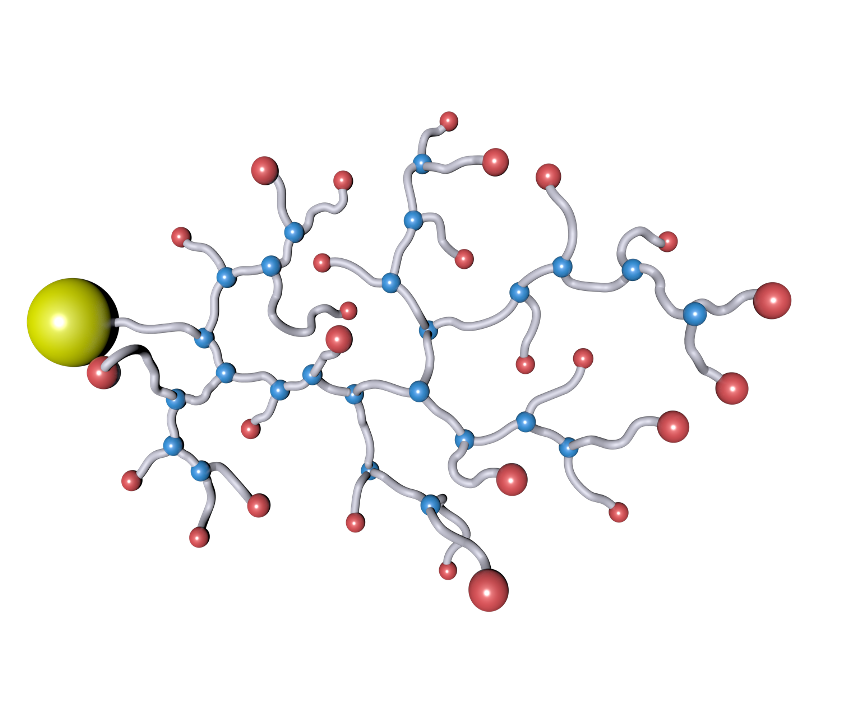Personalized Polymers: Customized Solutions for One-of-a-kind Applications
Personalized Polymers: Customized Solutions for One-of-a-kind Applications
Blog Article
Checking Out the Varied Applications and Benefits of Polymers in Different Industries
Polymers, with their varied variety of residential properties and performances, have actually become vital in various sectors, each gaining distinct gain from their application. Polymers. From boosting safety and efficiency in the automobile sector to transforming medical gadgets in the healthcare sector, polymers play a pivotal function. Additionally, their green nature is altering the landscape of sustainability methods. As we explore the midsts of polymers in electronics, we discover cutting-edge developments, while their structural stability transforms the world of building and infrastructure. The pervasive impact of polymers throughout sectors is a testimony to their adaptability and flexibility, forming the future of countless markets.
Automotive Market Applications
Polymers play a critical function in boosting the efficiency and sturdiness of numerous elements within the vehicle field. One famous use of polymers in the automotive sector is in the manufacturing of light-weight components.

Medical Care Sector Benefits
In different healthcare applications, the advantages of utilizing polymers are widely identified for their diverse series of helpful properties. Polymers play a crucial function in the medical care sector as a result of their versatility, biocompatibility, and cost-effectiveness. Among the key advantages of polymers in medical care is their capacity to be tailored to details needs, such as adaptability, sturdiness, and biodegradability, making them excellent for a large range of clinical applications.
Polymer-based products are extensively utilized in clinical tools, such as catheters, implants, prosthetics, and drug shipment systems, due to their biocompatibility and ability to simulate all-natural cells. These products can minimize the threat of allergic reactions or denials, improving patient safety and end results. In addition, polymers are light-weight, making them suitable for wearable medical devices and guaranteeing person convenience.
Moreover, polymers enable the growth of innovative therapy techniques, such as hydrogels for cells engineering and nanocomposites for targeted medication shipment. Their ease of handling and sterilization makes them necessary for maintaining high requirements of hygiene in healthcare setups. On the whole, the varied advantages of polymers add considerably to developments in medical modern technology and person treatment.
Ecological Benefits of Polymers

In addition, polymers can contribute to power financial savings because of their lightweight nature. In industries such as transport, lightweight polymer materials can help decrease fuel consumption and greenhouse gas discharges. In addition, polymers can make it possible for the growth of energy-efficient items such as insulation products image source that enhance energy preservation in buildings.
Additionally, polymers play an important role in decreasing water contamination. The use of polymer-based filtering systems can properly eliminate toxins and pollutants from wastewater, guarding water resources and communities. On the whole, the ecological benefits of polymers make them valuable assets in advertising sustainability and environment-friendly practices across numerous industries.
Polymers in Electronic Devices and Modern Technology
Considering the enhancing need for innovative and lasting options in modern-day markets, the integration of innovative polymer modern technologies in the world of electronic devices and modern technology has actually become a crucial strategy for driving performance and efficiency. Polymers have actually changed the electronics sector by enabling the manufacturing of lighter, a lot more adaptable, and long lasting digital devices. From smartphones to medical gadgets, polymers play a critical function in improving product design and performance.
One significant advantage of polymers in electronics is their shielding residential properties, which assist safeguard delicate electronic components from ecological variables and electrical disturbance. Additionally, polymers are important in the development of adaptable screens, wearable modern technology, and printed electronic devices, using endless opportunities for creating clever and interconnected devices.
Additionally, using polymers in digital packaging has caused innovations in miniaturization and thermal management, boosting the total efficiency and reliability of electronic systems. As innovation proceeds to progress, the flexibility and adaptability of polymers will undoubtedly drive additionally technology in the electronics industry, forming the future of More about the author technology.
Function of Polymers in Building and Framework
Polymers supply various benefits see this site in the building market due to their versatility, longevity, and cost-effectiveness. One vital function of polymers in building is their use in layers and sealers, providing defense versus ecological variables such as moisture, UV radiation, and corrosion.
Furthermore, polymers play a crucial function in sustainable building and construction methods by allowing the growth of energy-efficient structures. Protecting materials made from polymers help manage indoor temperature levels, lowering the demand for heating and cooling down systems and inevitably reducing power usage. Additionally, making use of polymer-based compounds in framework projects such as bridges and roads boosts their long life and decreases maintenance expenses. Overall, the incorporation of polymers in building and construction and facilities showcases their considerable effect on modern design methods.
Conclusion
In conclusion, polymers play a vital role in numerous industries such as auto, medical care, ecological, electronic devices, and construction. Their functional homes make them beneficial in producing cutting-edge options and items. From enhancing gas performance in lorries to enhancing clinical gadgets, polymers supply many benefits. Additionally, their influence on minimizing waste and advertising sustainability highlights their value in contemporary applications. The extensive use of polymers demonstrates their considerable payment to progressing technology and improving quality of life.
Report this page